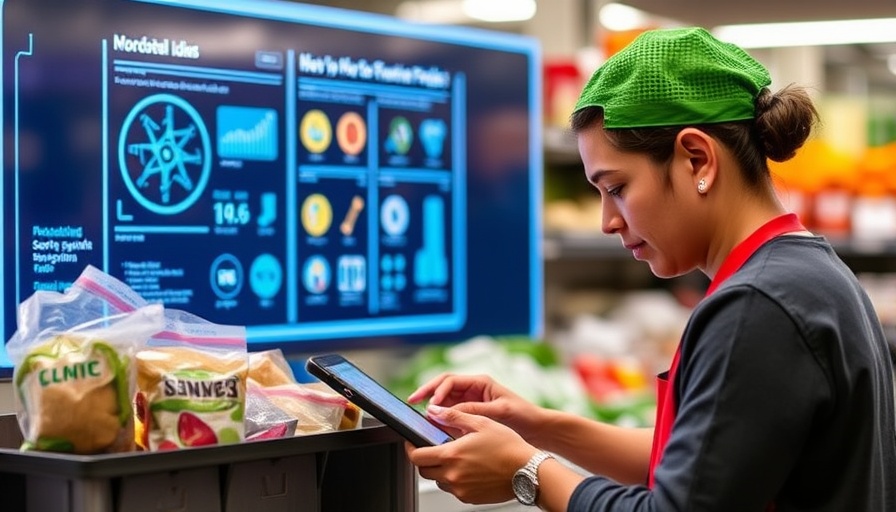
Revolutionizing Food Waste Management with AI
In a groundbreaking initiative, an artificial intelligence (AI) tool is being tested in the UK, promising to significantly reduce food waste—potentially saving the equivalent of 1.5 million meals. Major players in the food industry, including Nestlé, are participating in this pilot project that employs innovative technology to transform surplus food into a valuable resource.
How the AI Tool Works: Simplifying Complex Operations
The AI tool, developed by Zest, tracks and monitors edible food waste, providing real-time insights to help companies understand and reduce their waste. During its initial two-week trial at a Nestlé factory, the tool achieved an impressive 87% reduction in edible food waste. Such technology could identify items like a broken KitKat or products close to their expiry date that are otherwise too costly to sell, all while being perfectly safe to eat.
Major Implications: What This Means for the Environment
This initiative isn’t just about saving food; it also holds significant environmental implications. The project is expected to prevent 1,400 tonnes of CO2 emissions and save approximately £14 million in operational costs. By reducing food waste, companies can contribute to a more sustainable ecosystem, aligning with global efforts to tackle climate change.
The Importance of Collaboration in Tackling Food Waste
The collaboration of multiple organizations, including logistics firms and charities like FareShare, underscores the communal approach to combating this challenge. FareShare alone redistributes food to over 8,000 community groups, enhancing food security throughout the UK. This pioneering effort exemplifies the collective responsibility and capabilities of various sectors in addressing social issues like hunger and food sustainability.
Looking Forward: The Future of AI in Food Supply Chains
As the trial progresses, there is potential for this AI tool to expand across the food supply chain. The insights it generates could pave the way for smarter sourcing and distribution solutions, drastically transforming how food businesses operate. This could spearhead a new trend of AI adoption in the food industry, further enhancing operational efficiency and sustainability.
For anyone interested in how AI can revolutionize industries and promote sustainability, this trial showcases the exciting possibilities at the intersection of technology and social good. As we navigate these advancements, it’s crucial to remain informed and engaged with the evolving landscape of artificial intelligence.
 Add Row
Add Row  Add
Add 




 Add Row
Add Row  Add
Add 



Write A Comment